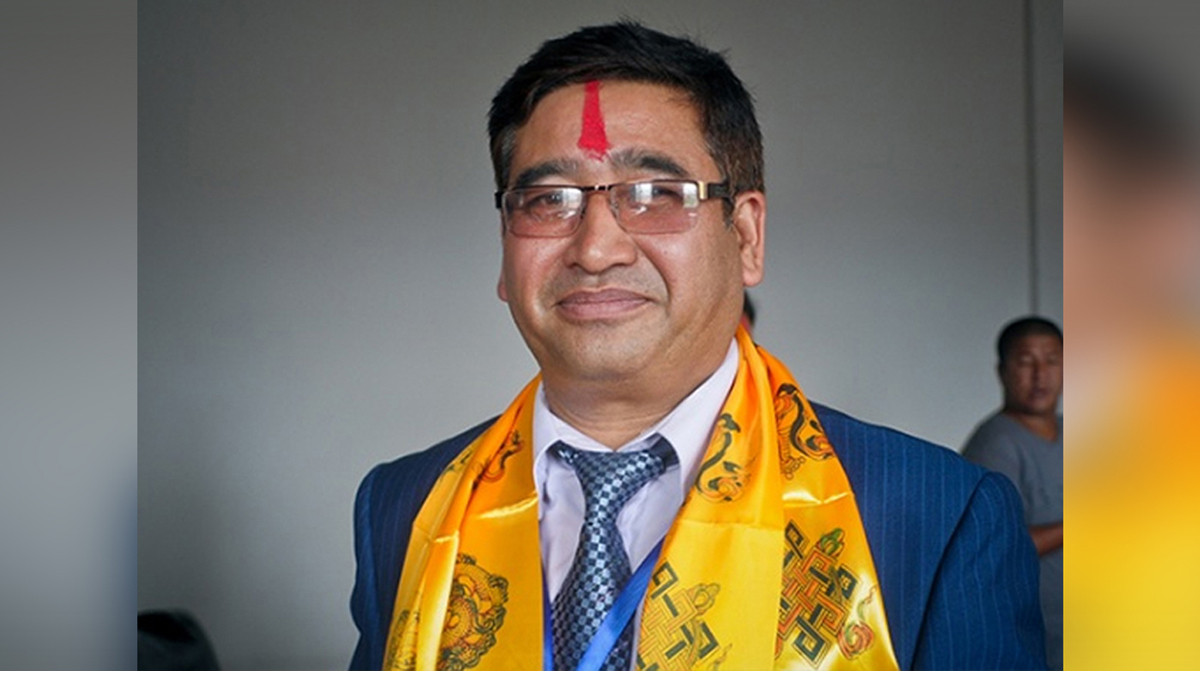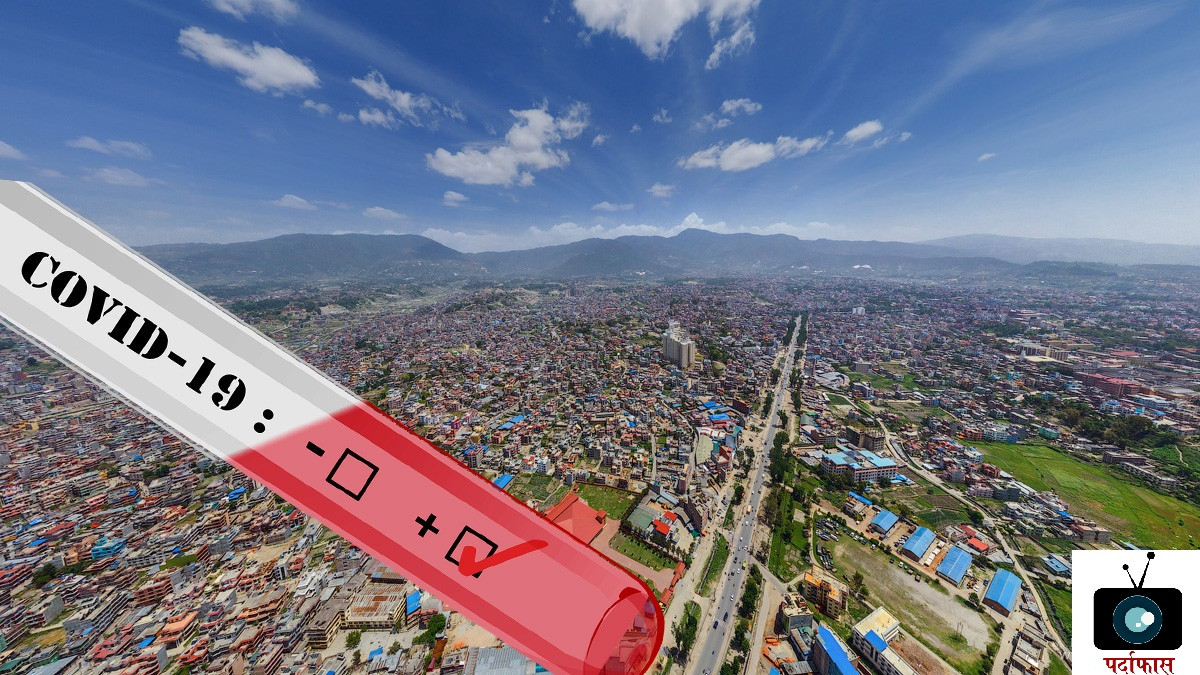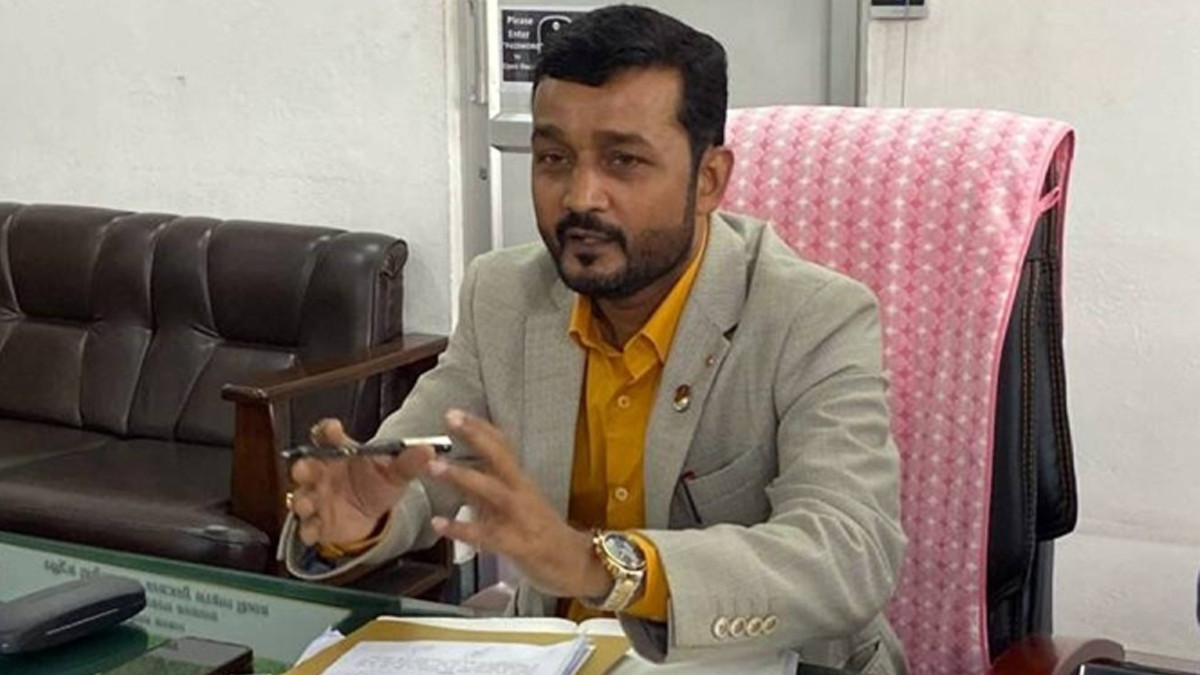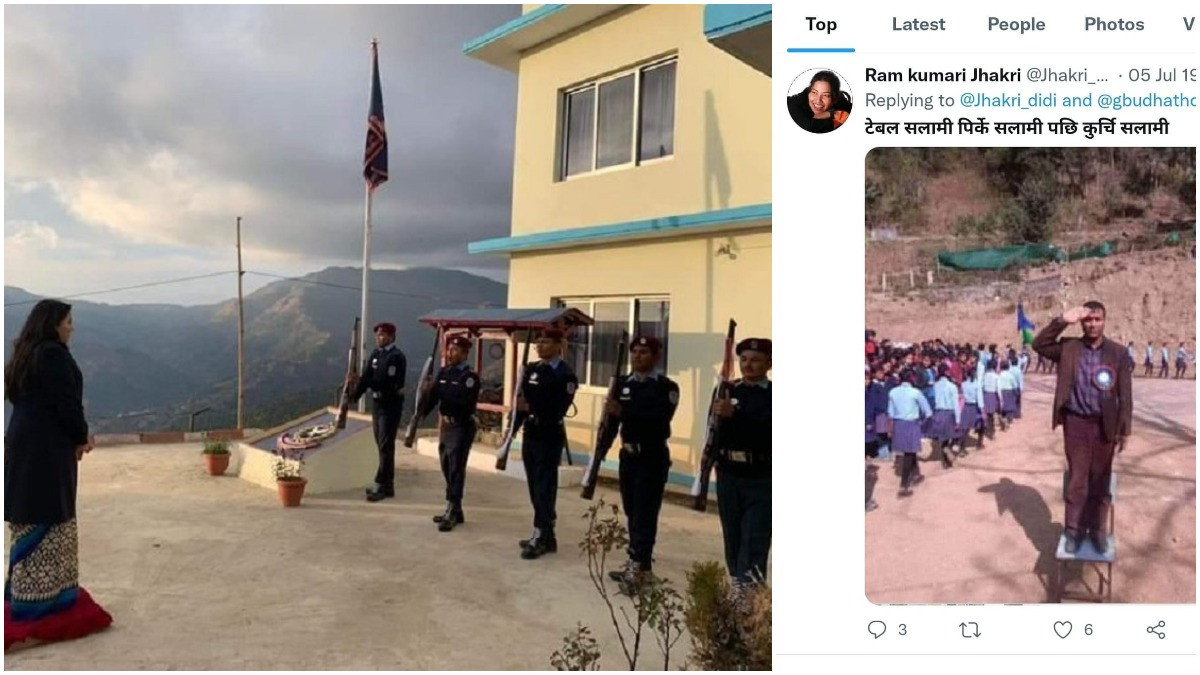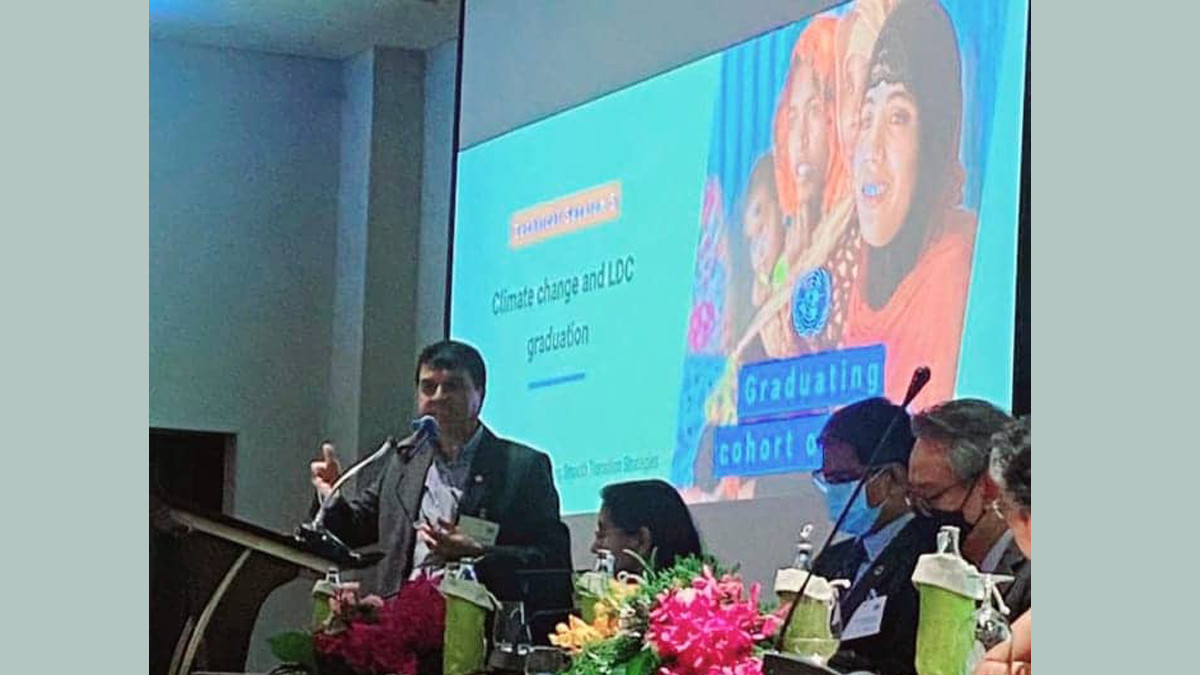
Senior Vice President of the Federation of Nepal Chamber of Commerce and Industry Chandra Prasad Dhakal said that in order to reduce the impact of climate change, the access of the private sector to the Green Climate Fund should be increased.
Speaking on behalf of the private sector in the technical session of the 4-day national workshop on ‘South-South Exchange on Preparing Smooth Transition Strategies: Graduating cohort of 2021’ organized by the United Nations in Bangkok, the capital of Thailand from Tuesday, Senior Vice President Dhakal said that in order to reduce the impact of climate change, which is seen as the biggest problem facing the world now, private sector’s access to Green Climate Fund should be increased so as to develop hydropower projects and the construction of transmission lines.
He said that the private sector should be assisted in raising subsidized investment. Dhakal said that by increasing Nepal’s hydropower production and the construction of cross-border transmission lines and the export of hydropower from Nepal to India and Bangladesh are underway and it can be expanded to South Asia.
“We are currently exporting Nepal’s hydroelectricity to India and Bangladesh by building a cross-border transmission line. If we can raise investment by facilitating the access of the private sector to the Green Climate Fund, it can be further developed and expanded to South Asia as well,” he said.
Stating that the private sector will play an important role in the development and expansion of new technology, Dhakal also mentioned that the private sector is capable of finding a solution to the climate change problem by making use of it if it can provide investment from the fund at a concessional rate.
He said that small and medium businesses can benefit from the development of hydropower projects and the construction of transmission lines.
“Now small and medium businesses have been hit by climate change impact. If the Green Climate Fund is provided for the development of hydropower projects and the construction of transmission lines at a concessional rate, it will help reduce the impact of climate change and protect small and medium businesses,” he said.
He also expected that if the private sector can get access to the Green Climate Fund, it will help not only in the development of hydropower and transmission lines but also can be used for promoting cable cars and other environment-friendly industries that can be operated using clean energy.
He urged the United Nations, the governments, and other non-governmental organizations to move forward with the private sector as climate change is becoming the world’s biggest challenge.
The national workshop is scheduled to discuss common challenges of graduation and identify pathways to address them collaboratively in devising smooth transition strategies.
Nepali delegation led by National Planning Commission Secretary Kebal Prasad Bhandari along with the representatives of the Nepal government, private sector, and various non-governmental organizations participated in the conference.



